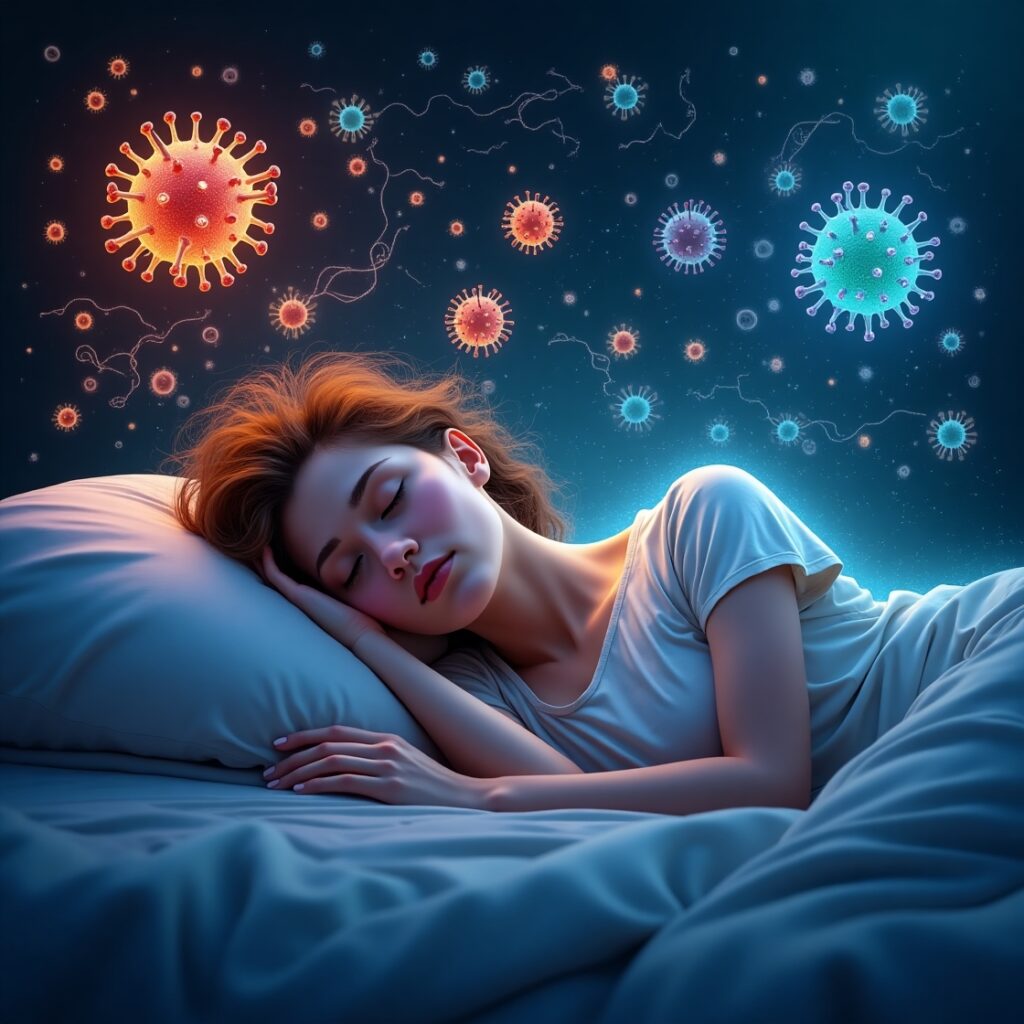This article will explore the impact of sleep on various aspects of the immune system, including immune cell activity, cytokine production, inflammation, and susceptibility to infections.
A growing number of researchers are interested in investigating the interaction between sleep and the immune system to understand how this vital aspect of our daily lives affects our bodies ability to fight disease.
Table of Contents
Introduction
Getting enough rest is as crucial to our health as drinking and eating (Okun 2011). It’s highly necessary, yet many people don’t have enough Sleep, which could affect their health. In particular, there’s an interplay between sleep and the immune system because not only does the immune system aid sleep, but changes in Sleep can also affect our immune system (Asif and Co. 2017). Lack of Sleep is believed to affect many people and can be a significant cause of weakened immunity, as demonstrated by several studies (Imeri and Opp, 2009).
1. should we mean by Sleep?
It’s an ordinary way that your body reduces the amount of attention it gives to activities and decreases their speed over a long period. While the exact reason for Sleep is unclear, many scientists believe it improves memory, reduces energy consumption and helps to restore cells (Ibarra-Coronado and co. (2015)). In the sleep phase, your body is characterized by the REM (Rapid Eye Movement) and non-REM stages. Each stage has a distinct role to play within the body.
2. How does Sleep regulate immune Function?
Your immune system protects your body from harmful invaders, such as viruses, bacteria, and other pathogens. It has two primary defences: innate immunity, which utilizes your body’s ability to block pathogens that have no specific characteristics, and adaptive immunity, which utilizes learned responses to identify and eliminate pathogens (Ibarra-Coronado et al. 2015). How they interact with Immunity and Sleep is being increasingly investigated. It is believed that there is a connection between Sleep and the immune system. This occurs when specific immune-related proteins regulate sleep patterns, and sleep-related substances regulate our immune system (Besedovsky and colleagues. 2019). Scientists have discovered the immune system and its cytokines (signalling molecules) control Sleep, which is why they are both essential to health (Zielinski and Gibbons, 2022). The Impact of Sleep on a Healthy Immune System: The Functions of Immune Cells. Sleeping can increase the activity of lymphocytes, a key component of our immune system. Sleep helps increase the growth of lymphocytes, which play a crucial role in fighting pathogens (Ibarra-Coronado and Co., 2015).
2.1 Sleep regulates immune responses
Cytokines, or proteins, transmit messages to the immune system that regulate its responses. Sleeping is a way to help your body create cytokines. During specific periods of Sleep, the body is stimulated to produce pro-inflammatory cytokines, which help fight off infections.
2.2 Sleep fight off infections
A lack of sleep time may hinder this process and decrease the immune system’s effectiveness (Harshitha and colleagues, 2024). Sleeping regularly for long periods can increase the level of inflammation in your body, which may affect the performance of your immune system.
2.3 Sleep maximizes vaccine-induced immunity
Lack of Sleep causes inflammation markers to increase and can lead to long-lasting health problems, such as the development of autoimmune diseases (Harshitha and Co., 2024). The effectiveness of vaccines: Not sleeping enough can reduce the level of protection provided by vaccines. Research has shown that sleep deprivation after vaccination can weaken the immune system, making it evident that adequate Sleep is essential to help vaccines meet their objectives (Imeri and Opp 2009).
3. Lack of Sleep Reduces the effectiveness of Immune Functions
Lack of Sleep Reduces the effectiveness of Immune Functions. A person is more susceptible to illnesses. There is strong evidence that people who have inadequate Sleep are more vulnerable to getting common colds and viruses. If you don’t get enough Sleep, your immune system becomes weak, allowing pathogens to infiltrate your system (Asif et al., 2017). Specific examples: The particular impact of insufficient Sleep on the immune system lies through its effects on lymphocytes.
If you’re not sleeping and lymphocytes are not functioning correctly, they may not function properly, and your body might not be able to fight infections well (Ibarra-Coronado and co. (2015)). Due to this, those who are regularly sleeping less are more prone to becoming unwell.
4. The impact of lifestyle on healthy Sleep and the immune system
Things Other than Sleep that Can Affect the Immune System: Our lifestyle, living conditions, and the environment that surrounds us. The quality of Sleep is affected by a range of things, both within and outside the mind, such as stress, work, and daily routines. Additionally, factors such as sound, bright lights, and room temperature can disturb sleepers. This is why they may weaken the body’s immune system (Okun 2011).
Conclusion
In the end, sleeping aids in keeping the immune system in good working order. Sleeping well helps immune cells function properly, enabling the body to produce cytokines and decrease inflammation, which in turn protects the body from diseases. However, insufficient Sleep impacts these functions, which makes people more susceptible to illness and reduces the effectiveness of vaccines. Getting enough Sleep is crucial, not just for relaxation but also to improve your immune system and overall health. Scientists must continue to study sleep-related immune interactions to understand better how Sleep can help the immune system function optimally.
